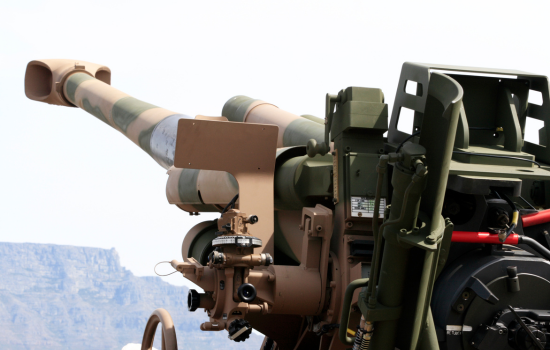War Crimes and Gentleman’s Agreements
Within the last eight days, two Iraqi suicide car-bombers have succeeded in killing seven soldiers of the U.S.-led coalition attempting to rid Iraq of Saddam Hussein’s government. Within days after the first of these attacks, U.S. soldiers had already killed more than a dozen innocent Iraqi civilians – including women and children – who were in cars that failed to obey signals to stop at checkpoints. In the wake of the second checkpoint bombing, it seems almost certain that more innocent Iraqi civilians will die as the result of Coalition soldiers’ legitimate fear of suicide attacks.
The pattern is beginning to look sadly familiar to those familiar with the Israeli-Palestinian conflict: an overwhelmingly stronger military power finds that while it has no problem “winning” in open combat, it is constantly forced to choose between undesirable alternatives when confronted with terrorism and guerilla attacks. If the stronger power is unwilling to suffer substantial losses to its own side due to these attacks, it inevitably finds itself killing many of the other side’s noncombatant civilians, at great political cost. Israel has confronted this dilemma for many years, without arriving at any really “elegant” answer to its challenges. Now the United States and Great Britain must hope that they can avoid becoming the targets of an “Iraqi Intifada” – unless they can arrive at a solution to the problem of “asymmetrical warfare” that has eluded Israeli leaders for more than half a century.
The parallel between the two conflicts is not accidental. It has become clear that before the war started, Saddam’s lieutenants made a detailed study of Palestinian tactics of the last thirty months, including those used against Israel’s incursion into Jenin a year ago. Saddam clearly believes that if he can create conditions in Iraq similar to those that prevail in the Gaza Strip and the West Bank, he can win the political war without winning any conventional battles. At least in hindsight, this approach seems obvious: there was never any real chance for the Iraqi army to make a good showing in battle against overwhelmingly superior American and British forces; and Iraqi use of non-conventional weapons would serve only to validate the invasion, while probably failing to do much damage to well-protected and forewarned troops.
So far, it is unclear whether an “Iraqi Intifada” will really take place, or whether Iraq’s people will accept Coalition forces as liberators once it is clear that Saddam’s regime has been effectively removed from power. Should this “uprising” take place, though, the United States and Great Britain will join Israel in receiving the opprobrium of “right-thinking” people, who will brand them as brutal occupiers and murderers of innocent civilians. Coalition spokesmen will try to justify their soldiers’ actions as legitimate under the Geneva Conventions (a.k.a. “international law”), given the Iraqis’ violations of the sanctioned rules of warfare. These attempts will fail to change anyone’s opinion.
It seems that the international court of public opinion will permit the Iraqi regime to get away with routine and flagrant violation of the Geneva Conventions. At the same time, the U.S. and the U.K., both generally careful to operate within the Geneva strictures, will bear almost the entire onus for the human cost of their invasion to oust Saddam Hussein. This inequity highlights a distressing truth: The Geneva Conventions are no longer effective in regulating the conduct of nations in wartime. If the world is to avoid the horrors of unregulated, “no-holds-barred” conflicts in the future, significant improvements must be made in the formulation and enforcement of the laws of armed conflict.
The Geneva Conventions (along with the Hague Convention) basically amount to a “gentleman’s agreement” among nations as to how military conflicts are to be conducted. Fundamentally, the Conventions attempt to restrict combat to the uniformed armed forces of combatant states, while protecting civilian populations, medical facilities, cultural and religious sites, and so on. They also restrict the types of weapons that can be used on the battlefield: poison gas and expanding bullets are well-known examples of forbidden armaments. Violations of these rules of warfare are considered “war crimes”, and violators can face severe punishments.
The common perception of the Geneva Conventions is that they impose a blanket prohibition against attacking the various designated “protected” targets belonging to one’s enemy. This view misses a crucial point: civilian targets are protected not only from attack by enemy forces, but also from military use by their own side. In order for one side’s “protected” people and facilities to be excluded from combat, the other side is entitled to the assurance that these “protected” targets are in fact of no military value and present no danger. The Conventions are not meant to strengthen whichever side in a war is fighting on its home turf; they do not “take sides”, but rather impose obligations equally on attacking and defending forces.
The use of “protected” people and facilities for military purposes is called “perfidy” under international law. When combatant forces take unfair advantage of the protected status accorded to civilians, medical personnel and facilities, surrendering troops, and so on, the entire logical and ethical structure of the regulation of combat breaks down. When soldiers lose their trust in the harmlessness of apparent noncombatants; when they discover that ambulances are being used to transport fighters or ammunition; when they find military supplies stored in hospitals, schools, or houses of worship, they can no longer be expected to treat these people, vehicles, and places as sacrosanct. And, of course, when “protected” targets lose their protection, the innocent pay the price.
Because it exposes “protected” targets to legitimate military attack, perfidy committed by a defending force is just as much a war crime as an attacking force’s illegitimate attack on a “protected” target. However, real-world enforcement of the Geneva Conventions – both in terms of actual legal proceedings and, more importantly, in terms of political penalties for violations – is not so even-handed. As there is no independent, international “war police” to ensure uniform compliance with the Conventions, legal enforcement is consistently driven by political considerations. “Enlightened public opinion” will always sympathize with the innocent civilians who have been killed or injured by invading forces – and thus will castigate the invaders as the “bad guys”, regardless of whether the real war crime was the perfidious abuse of “protected” status by the defenders.
Further, the system of rules of warfare enshrined in the Geneva Conventions is based on the unstated assumption that the conflicts to be regulated are essentially “symmetrical”. In traditional “symmetrical” warfare, the warring states adhere to the conventional model of a uniformed military distinct from their civilian population. They are concerned with maintaining their reputation for “playing by the rules”, knowing that violating the rules of war today may lead a present or future opponent to violate the same rules tomorrow. As members of the same community of nations, the warring states know that both sides will be evaluated by the same standards; in other words, they are playing to the same international audience. Given these symmetries, it is worthwhile for warring states to follow the Geneva Conventions carefully, even if unenthusiastically.
However, more and more conflicts nowadays are “asymmetrical”. Terrorist and guerilla organizations do not wear uniforms, and deliberately blend themselves in among the noncombatant civilian population. When states use such unofficial organizations as proxy combatants, their governments no longer worry about gaining a reputation for committing war crimes; since the actual combatants are not part of the official chain of command, government leaders are not held responsible for the “details” of how combat is carried out. Third-world governments are often more concerned about their local reputation for toughness than about their reputation farther afield for being “good sports” – and in situations like the current Iraqi conflict, the “local heroes” are likely to be admired for ruthlessness in confronting foreign “imperialists” rather than castigated as rule-breakers. Much of world public opinion will favor the third-world underdog in any case, and will hold conventional forces responsible for civilian casualties even when acts of perfidy are really to blame.
Recent asymmetrical conflicts like the “al-Aqsa Intifada” and the current invasion of Iraq demonstrate how toothless the Geneva Conventions can be. If this trend continues, the entire regime of rules for the conduct of warfare may weaken or collapse. Western nations cannot be counted upon to remain eternally patient with a legal system that seems always to favor the lawbreaker.
To deal with these challenges, the rules of warfare must be substantially amended to deal more successfully with asymmetrical conflicts. Such changes should include uniform definitions of terrorism and guerilla warfare, with strong penalties for the former and appropriate regulation of the latter; clear definitions of the various forms of perfidy, and their consequences, including specification of which “protections” are to be voided under what conditions; and a strong, apolitical enforcement mechanism to punish war criminals.






